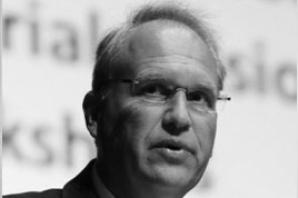Addressing the complexity of road traffic networks
Everyone who has ever been stuck in traffic knows how frustrating and time-wasting it can be. ERC grantee Carlos Canudas de Wit is working on a global approach to improve traffic management systems using the new technologies and innovations that have not yet been fully exploited.
Control system theory tried to address some of the problems involved in managing road networks, but controlling these large networks remains still problematic and traffic management systems do not always prevent the occurrence of congestion. In order to address network complexity in the widest sense, Dr Canudas de Wit proposes to design novel mathematical scale-free methods which can be used to break down complexity in large-scale network systems, and then to build estimation and control algorithms that could be specifically tailored to these models.
He and his team will test the new theoretical developments with high-performance field experiments and realistic simulations at Grenoble Traffic Lab, an experimental platform collecting various kinds of real-time urban traffic data from the city of Grenoble. In addition, the methods based on real-time data collected from different sources will enable the team to create a unique traffic database, which will be made available for further studies.
Thanks to a comprehensive approach and using the new opportunities presented by the latest large-scale sensing technologies, the Scale-FreeBack team expects to come up with some innovative traffic control solutions. Their hope is to improve control and security of large traffic networks, but also to find new solutions that can be applied to other complex systems, such as power distribution networks, and multi-agent systems, among others.
Born in Mexico, Carlos Canudas-de-Wit holds a Ph.D. in automatic control from the Polytechnic of Grenoble (France). He is Director of Research at the French National Center for Scientific Research (CNRS), where he teaches and conducts research in the area of control systems. He is the currently the leader of the Networked Controlled Systems team. He is an IEEE and IFAC IEEE-Fellow.






